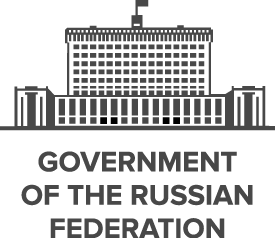Founded in the 12th century, the Principality of Muscovy was able to emerge from over 200 years of Mongol domination (13th-15th centuries) and to gradually conquer and absorb surrounding principalities. In the early 17th century, a new ROMANOV Dynasty continued this policy of expansion across Siberia to the Pacific. Under PETER I (ruled 1682-1725), hegemony was extended to the Baltic Sea and the country was renamed the Russian Empire. During the 19th century, more territorial acquisitions were made in Europe and Asia. Defeat in the Russo-Japanese War of 1904-05 contributed to the Revolution of 1905, which resulted in the formation of a parliament and other reforms. Repeated devastating defeats of the Russian army in World War I led to widespread rioting in the major cities of the Russian Empire and to the overthrow in 1917 of the imperial household. The communists under Vladimir LENIN seized power soon after and formed the USSR. The brutal rule of Iosif STALIN (1928-53) strengthened communist rule and Russian dominance of the Soviet Union at a cost of tens of millions of lives. After defeating Germany in World War II as part of an alliance with the US (1939-1945), the USSR expanded its territory and influence in Eastern Europe and emerged as a global power. The USSR was the principal adversary of the US during the Cold War (1947-1991). The Soviet economy and society stagnated in the decades following Stalin’s rule, until General Secretary Mikhail GORBACHEV (1985-91) introduced glasnost (openness) and perestroika (restructuring) in an attempt to modernize communism, but his initiatives inadvertently released forces that by December 1991 splintered the USSR into Russia and 14 other independent republics.
Following economic and political turmoil during President Boris YELTSIN's term (1991-99), Russia shifted toward a centralized authoritarian state under the leadership of President Vladimir PUTIN (2000-2008, 2012-present) in which the regime seeks to legitimize its rule through managed elections, populist appeals, a foreign policy focused on enhancing the country's geopolitical influence, and commodity-based economic growth. Russia faces a largely subdued rebel movement in Chechnya and some other surrounding regions, although violence still occurs throughout the North Caucasus.
Russia is a semi-presidential federation.
Members:
Resources
Displaying 1001 - 1005 of 1046Federal Law No. 260-FZ amending Federal Law No. 166-FZ on fisheries and conservation of aquatic biological resources and Land Code (No. 136-FZ of 2001).
Article 18 of the Federal Law No. 166-FZ on fisheries and conservation of aquatic biological resources shall be supplemented with item 2 of the following wording: “The boundaries of the fishing area shall be established by the authorized federal executive body in the sphere of fisheries and conservation of biological diversity”, and item 6 of the following wording: “The use of the plots of land for fisheries shall be carried out in conformity with the water and land legislation”.
Agreement between the Russian Federation and Azerbaijan on cooperation in the sphere of geodesy, cartography, cadastre and distant zoning of the Earth.
The Parties have agreed to cooperate in the following fields: (a) carrying out geodetic, mapping and cartographic activity; (b) exchange of information regarding distant zoning of the Earth; (c) exchange of experience between mapping, geodetic and cartographic organizations and educational institutions; (d) joint research. For the purpose of carrying out the aforesaid activity the Parties shall set up working groups of experts.
Agreement between the Russian Federation and Kazakhstan on cooperation in the sphere of geodesy, cartography, cadastre and distant zoning of the Earth.
The Parties have agreed to cooperate in the following fields: (a) carrying out geodetic, mapping and cartographic activity; (b) exchange of information regarding distant zoning of the Earth; (c) exchange of experience between mapping, geodetic and cartographic organizations and educational institutions; (d) joint research. For the purpose of carrying out the aforesaid activities the Parties shall set up working groups of experts.
Agreement between the Russian Federation and Armenia on cooperation in the sphere of geodesy, cartography, cadastre and distant zoning of the Earth.
The Parties have agreed to cooperate in the following fields: (a) carrying out geodetic, mapping and cartographic activity; (b) exchange of information regarding distant zoning of the Earth; (c) exchange of experience between mapping, geodetic and cartographic organizations and educational institutions; (d) joint research. For the purpose of carrying out the aforesaid activity the Parties shall set up working groups of experts.
Agreement between the Government of the Russian Federation and the Government of Canada on cooperation in the Arctic Zone and in the North.
The Parties have agreed to cooperate in the following forms: (a) exchange of officials, experts and representatives of local communities of the North; (b) exchange of information and documentation; (c) organization of joint symposia, conferences and seminars for experts; (d) exchange and transfer of technologies; (e) joint research and development (art. 2). A Joint Russian-Canadian Commission shall be set up for the purpose of the implementation of the present Agreement (art. 4).


